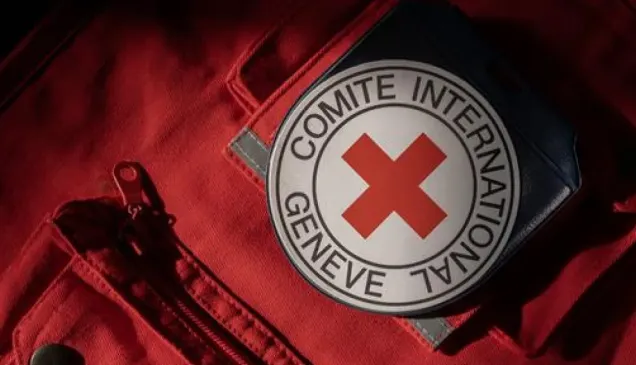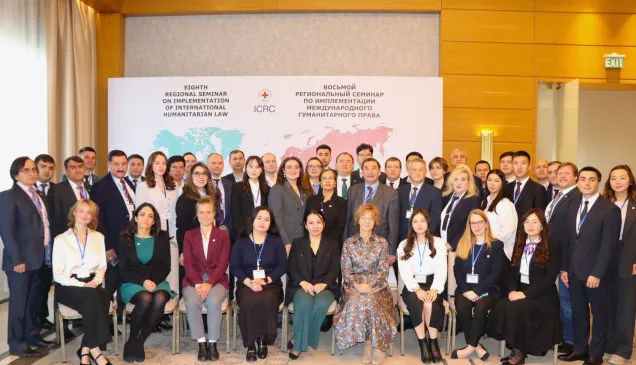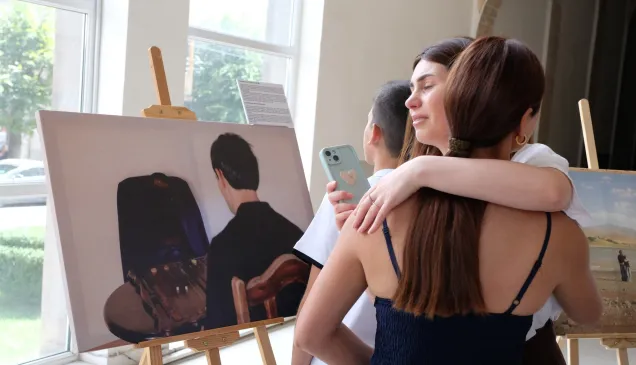Armenia: Building mental health resilience in conflict-affected communities
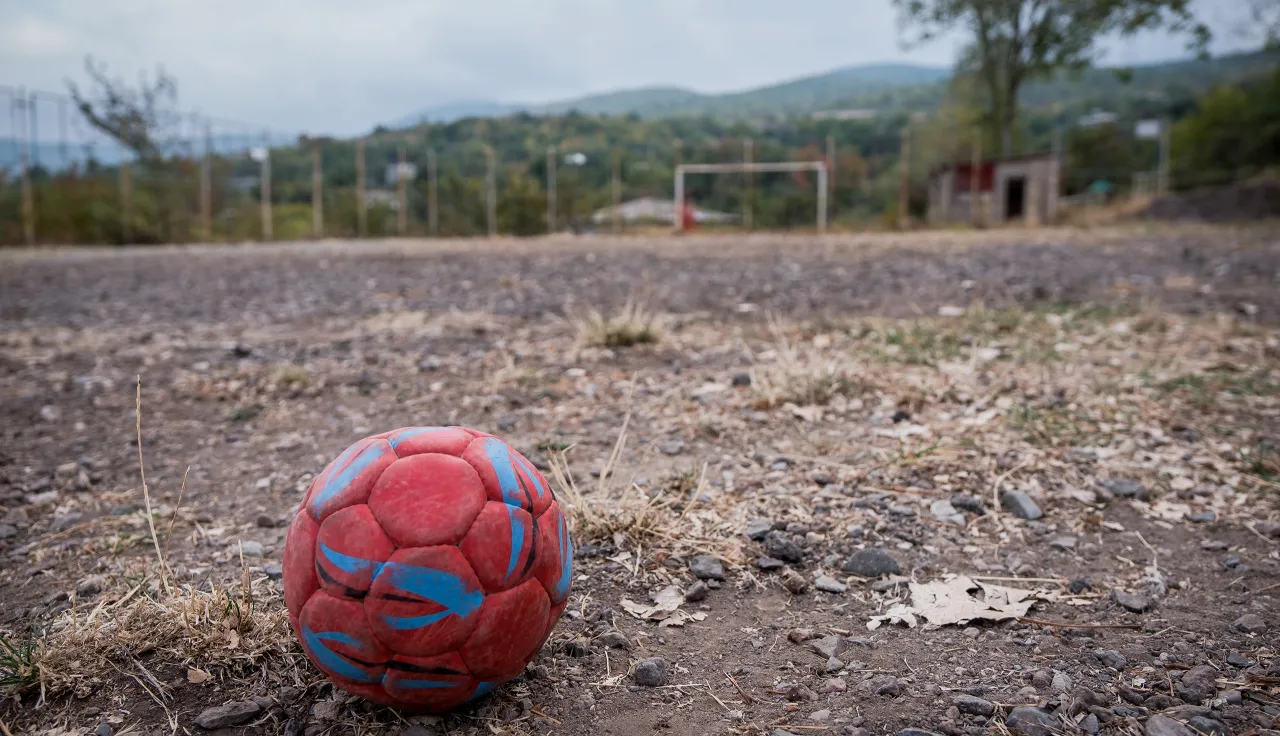
For the past 30 years, the Nagorno-Karabakh conflict has taken a heavy toll on people’s mental health, especially among those living along the border between Armenia and Azerbaijan.
"We live in an environment of constant risks," says Kristine Aydinyan, a schoolteacher from Aygepar. "I would often find bullets on our balcony, and when there was shooting, I would stuff cotton in my daughter's ears so that she didn't hear it. If shooting took place during school hours, we would take the children to an underground shelter and play games and music for them."
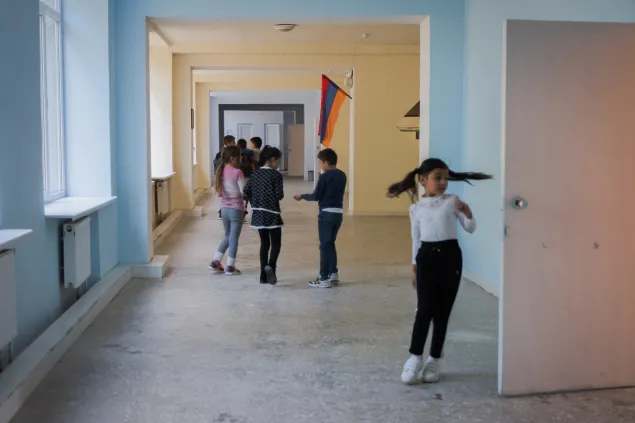
People have learned to live with the situation, no longer even wondering whether it's normal. "Constant fear has become the norm for us," says Liliana Makaryan, a teacher from Chinari.
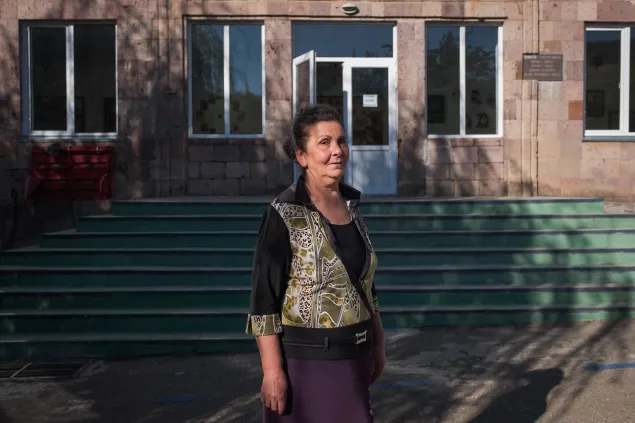
This has led to a growing prevalence of mental health problems, which have been exacerbated by unawareness, misperception and stigma. "There's also a lack of trust in psychological services – most of which are only available in the capital Yerevan anyway," explains Loussine Mkrttchian, an ICRC psychologist.
Mental health issues soared last year following the surge in violence that affected not only people living in border communities but also in other parts of Armenia. "The short-term impact was high levels of distress and strong fears among the affected population," says Sofia Gimenez Molinero, an ICRC mental health and psychosocial support delegate in Armenia.
"Since the fighting escalated last year, we've been struggling to adapt to the situation we find ourselves in," says Hratsin Aperyan, a teacher from Chinari.
We're caught up in a swirl of emotions, fears and anxiety for the children.
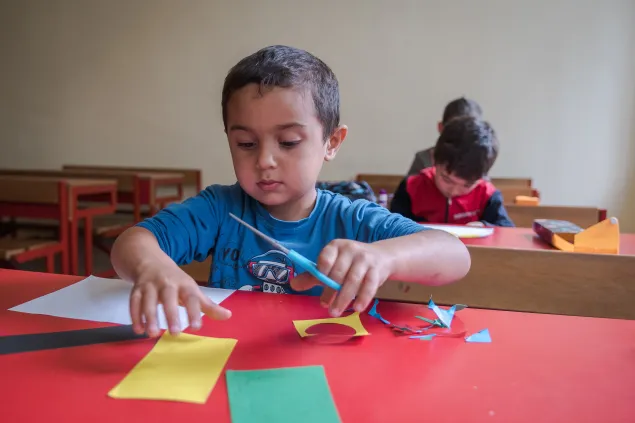
The Nagorno-Karabakh conflict escalation deprived large numbers of people of their belongings, but also of their loved ones – many of whom are missing or have been detained. And thousands of displaced people came to Armenia. "I worked with a lot of displaced families," says Susanna Barseghyan, a psychologist in the southern Armenian town of Kapan.
They had lost so much and were no longer interested in anything, and their children would jump at the slightest noise. They were so stressed that they didn't believe anyone could help them.
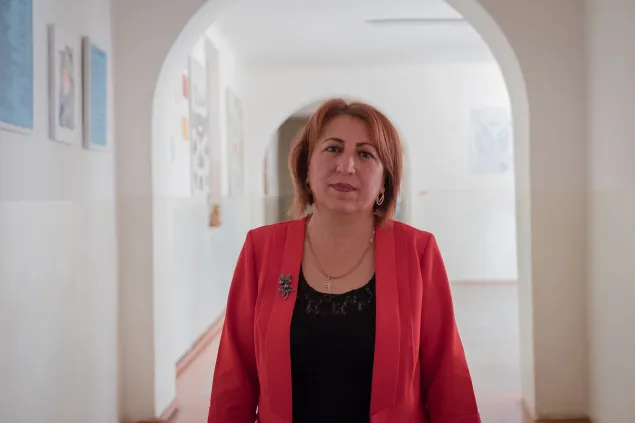
"Our town, Sisian, has the most victims and the highest number of people reported missing out of our entire region," says Gayane Grigoryan. People are exhibiting hopelessness, indifference, loneliness and even aggression, with cases of domestic violence in the community on the rise. Yet there are no services available locally that people can turn to for help with their mental health problems.
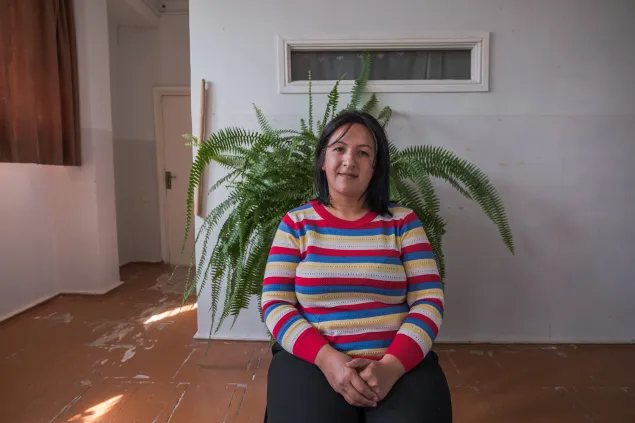
"Villagers here used to breed cattle but had to sell them all because the pastures are mined or pose other risks," says Anna Sargsyan, a teacher from the border community of Davit Bek. "They can't grow crops, so they sold their farm equipment. Seven families have already left the village because of this." Other families have moved owing to rising anxiety among their children, some of whom started stuttering, sleeping poorly or being easily startled. "Just look at my daughter," says Anna.
She kept telling me she didn't want to hear the windows rattle, because she knew what might come next.
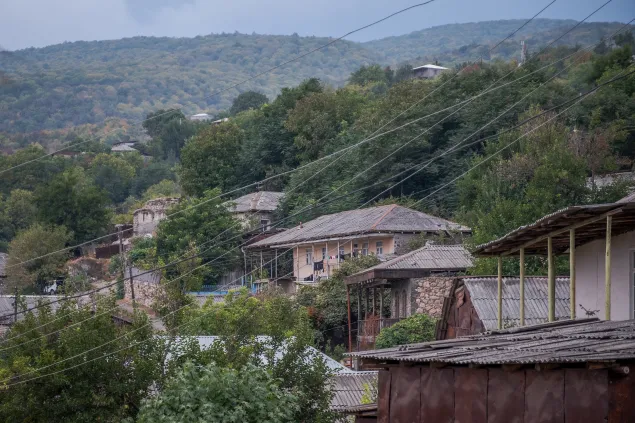
"We now live so close to the border that we're exposed to the risks brought on by a nearby road blockade," says Anna Mnatsakanyan.
And we're afraid to go into the woods, as there may be leftover explosives. We live in constant fear for our children and families.
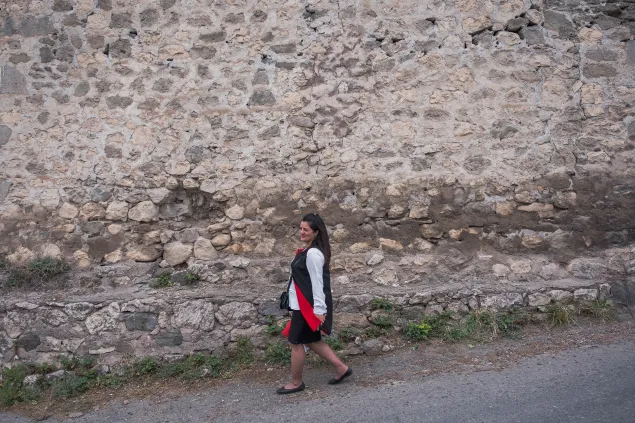
Life is quite stressful for Julieta Barseghyan, who has three sons serving in the military.
You hear a sound and call your neighbors to see what happened. You constantly think war will break out again. You hear news of someone's cow exploding on a landmine, close to your own plot of land.

The situation seems more stable now, yet mental health issues haven't gone away – and more and more people are recognizing the need to address them. "There's been a shift," says Loussine, an ICRC psychologist.
People are overwhelmed, and many of them admit that there are some issues that need to be dealt with by specialists.
The ICRC tackles mental health and psychosocial issues in Armenia through two projects: Help the Helpers and Victims of Violence. The Help the Helpers project trains staff members at the Republican Psychological-Pedagogical Center (RPPC), and they in turn train schoolteachers in the border communities. Over the course of several sessions, the teachers learn how to draw on both personal and external resources to better cope with conflict-related stressors. This way they can support their students and the community at large. "The beauty and power of the Help the Helpers approach is that it takes the participants very discreetly from where they are and helps them to move forward with gradual but tangible changes in their self-confidence and way of thinking," explains Loussine.
The idea is to challenge the participants, so that they find their own strength and inner potential.
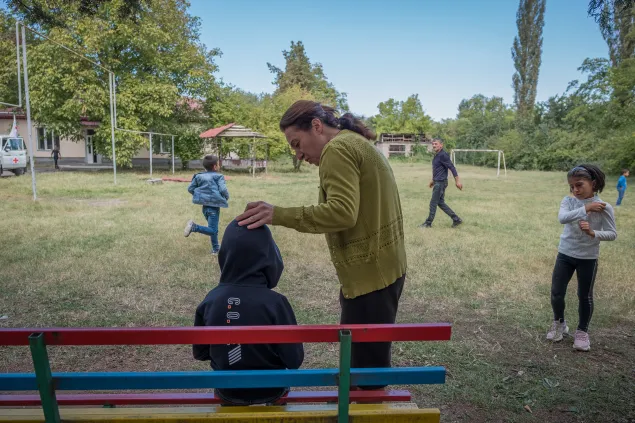
For those who participated in the ICRC-led sessions, the whole experience turned out to be a journey of acceptance and transformation. That said, the struggle to break the stigma in conflict-affected communities in the Syunik and Tavush regions wears on.
"At first teachers would laugh about difficult situations. When talking about children who were caught in shelling or accidentally entered a mined field, for example, they would make jokes," says Lusine Hakobyan, a psychologist from the RPPC. "That was such an inappropriate response to those situations, but it was their way of coping. After a few meetings, the teachers began to express their emotions differently when discussing the same scenarios. They would become emotional, as more appropriate mechanisms kicked in."
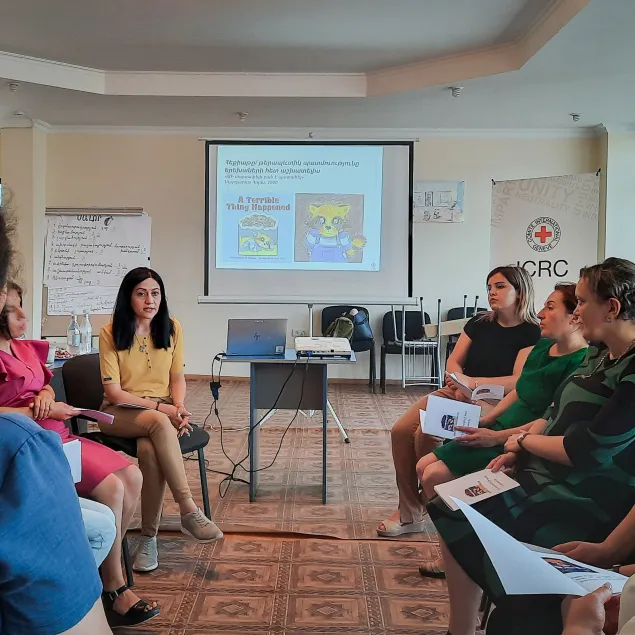
"Our approach now is to try to help without causing harm," explains Susanna, the psychologist from the town of Kapan.
We want people to understand that life goes on, and that there's no such thing as a bad life, just bad days. We want them to know that they are not alone and that there are people ready to support them.
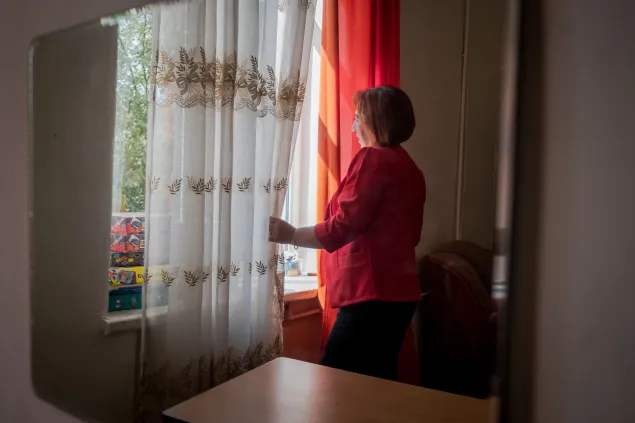
"Thanks to this training, we became stronger and helped strengthen the teachers," adds Gayane Harutyunyan, from the RPPC.
By changing ourselves we were able to change them. We gave them the tools they need to overcome their difficulties, and we could already see how effective our efforts were.
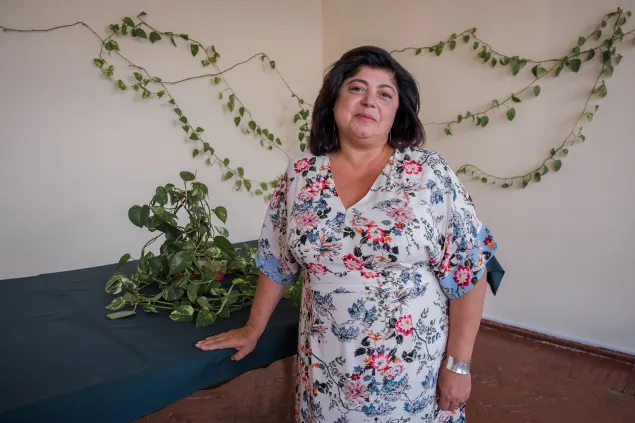
Here is what some of the teachers have to say about their experience in the Help the Helpers project:
Kristine Aydinyan
Our meetings with the ICRC psychologist turned me upside down and helped me to reduce my stress, control my thoughts and concentrate on the positive. Breathing exercises have been especially useful. We also learned how to spot telltale signs in our students and their parents as well as how to work with them.
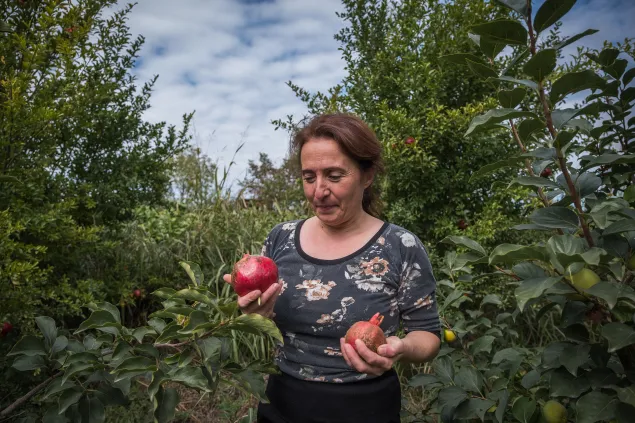
Hratsin Aperyan
At the ICRC-led sessions we learned about relaxation techniques to reduce stress. We can now pass those skills on to our students. We teach them breathing exercises, and we calm ourselves down together when we're in a shelter.
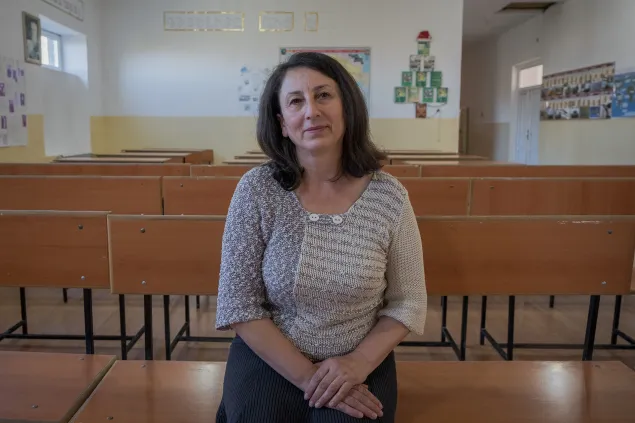
Anna Sargsyan
I noticed changes in myself, and I feel more confident about helping children and teenagers. From now on, I will take a more skills-oriented approach to coping with stress, based on the information I learned at the workshop. I feel fully recharged and revitalized, with a positive mindset and thoughts.
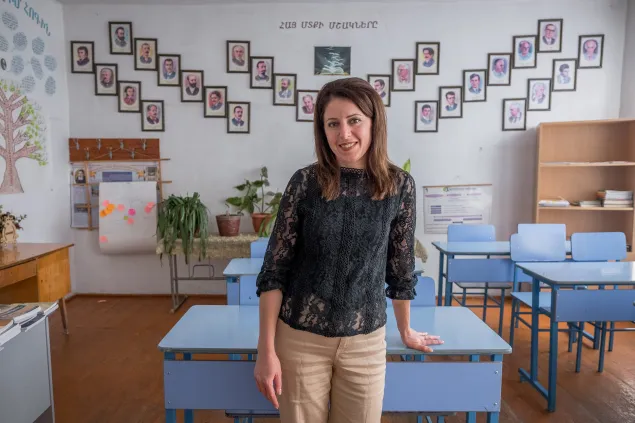
Anik Stepanyan
What we knew about stress before was pretty incoherent and fragmented. Now it has structure and shape – and this is very motivating.
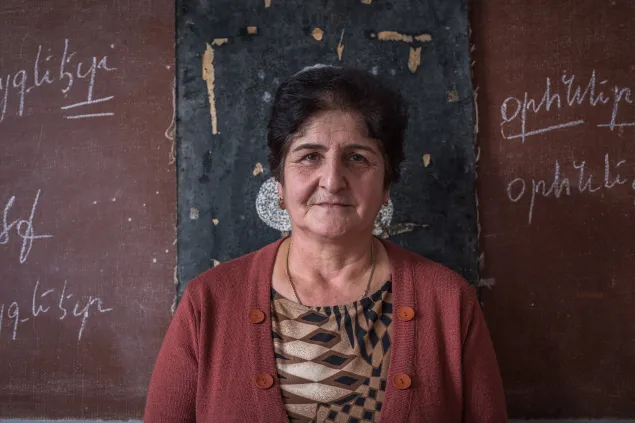
The ICRC's other mental health initiative in Armenia – the Victims of Violence project – is designed to set up basic psychological services at the community level. "Our aim is to enhance the resilience of conflict-affected communities and build a support system," says Sofia, the ICRC's mental health delegate in Armenia. Volunteers from the Armenian Red Cross Society (ARCS) are trained to identify mental health issues such as grief, depression, anxiety and stress and to then provide basic psychological support. They work with people affected by the recent escalation in hostilities, including those who have been displaced and the families of those who are sick or missing or have been detained. "For us, it's important to share the message that, after living through conflict, it's normal to suffer and have trouble coping," says Sofia.
"We provide basic psychological support mainly to those who have been affected by the surge in fighting over the past year," says Svetlana Ananyan, from the ARCS. "These are families who have lost loved ones or have been displaced, or whose relatives are missing or have been detained. Thanks to the efforts of our volunteers, we try to be accessible across the Tavush region. We also run awareness-raising sessions to encourage people to recognize the role played by mental health issues."
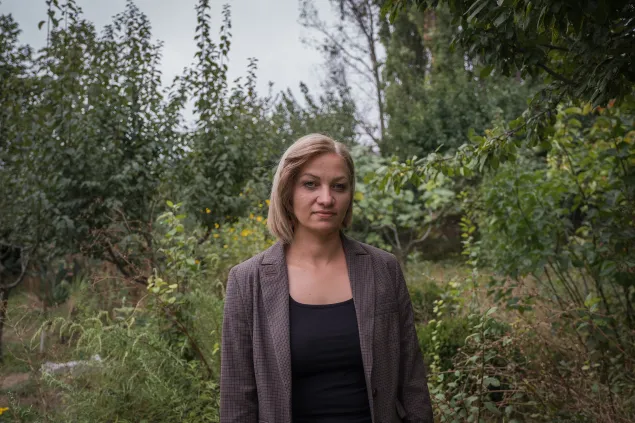
"If there had been psychological services in the 1990s, people would surely have used them. But since such services didn't exist, people simply learned to live with mental health issues," says Anna Ananyan, an ARCS volunteer. "Following the hostilities last autumn, the perception of mental health is gradually changing. I've been meeting with someone who took part in the fighting. It's very difficult to work with him, but I can already observe a positive change. His life seems to be returning to normal."
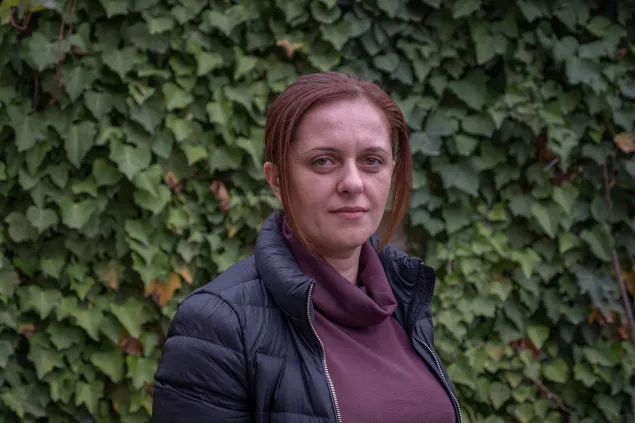
Gayane Grigoryan, another ARCS volunteer, views the ICRC-led training sessions as a form of group therapy. "After a few meetings, I was recharged and ready to get my life back on track," she says.
We were comfortable expressing our emotions and we felt no sense of shame towards anyone. Being aware of mental health issues helped me build up my resilience to stress.

